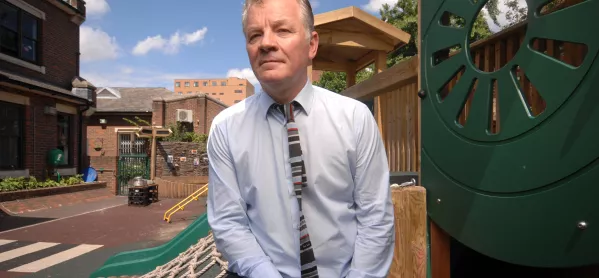GCSEs should be scrapped because they mean too many children leave school with repeated experiences of failure, an influential educationalist has said.
Sir Kevan Collins, outgoing chief executive of the government-backed Education Endowment Foundation, said that he believed that a range of pathways from age 14 to 18 should be developed.
This would mean the “forgotten third” of young people who fail to get GCSE English or maths would have four years to get level 2 (equivalent to GCSE at grade C/4) qualifications, rather than their current experience of being tested after two years, followed by resits.
Quick read: Alternative maths GCSE resit curriculum to be tested
GCSE: Do I need to resit English and maths?
Exams: Students forced to sit GCSE exams nine times
“I think we need to think again about the value of examinations at 16 for all pupils,” Sir Kevan told Tes.
“Education and training through to 18 should be the norm for all with a range of pathways that serve a broad and diverse range of needs. The final exams should include achievements on academic and vocational pathways.”
Currently, students who achieve a grade 3 (or old grade D/E) in English or maths GCSE have to retake the exam. Those with lower grades than this can either retake the GCSE or take another approved qualification.
The resit policy has seen the number of pupils leaving at 18 with GCSE English and maths rise to 68.1 per cent in 2018, compared with 59.6 per cent in 2013, before it was introduced.
Calls for GCSE resits to be scrapped
But the pass rate for those resitting the exams is low. The exam boards reported that between 32.8 per cent and 41 per cent of candidates gained a grade 4 or higher in English in the November 2018 resits and between 25.2 per cent and 27.7 per cent did so in maths.
And the concern that many pupils are still leaving school without a recognised qualification in English or maths has led several organisations, including the Labour Party, the Association of Colleges, the awarding body the NCFE and the Association of Employment and Learning Providers, to call for the resit policy to be reviewed or scrapped.
While others such as Robert Halfon, chair of the Commons Education Select Committee, and Lord Baker, the man who as education secretary introduced GCSEs, have said that not just resits but GCSEs themselves should be ditched.
Now Sir Kevan has added his voice to the calls for an end to high-stakes exams at 16.
He said: “I’m not advocating a new wave of external high-stakes tests at 14. However, I do think schools should be required to assess attainment, particularly in relation to English and maths.
“The key change would be the opportunity to develop 14-18 pathways that include a broad range of subjects and include an opportunity to take four years to secure level 2 English and maths for the ‘forgotten third’. Others would as now progress through to level 3.
“The aim of the approach is to ensure that all young people are prepared for the next phase of learning, either as part an employer-led apprenticeship or in HE. So, yes, GCSEs, as they stand at 16, should go.”




